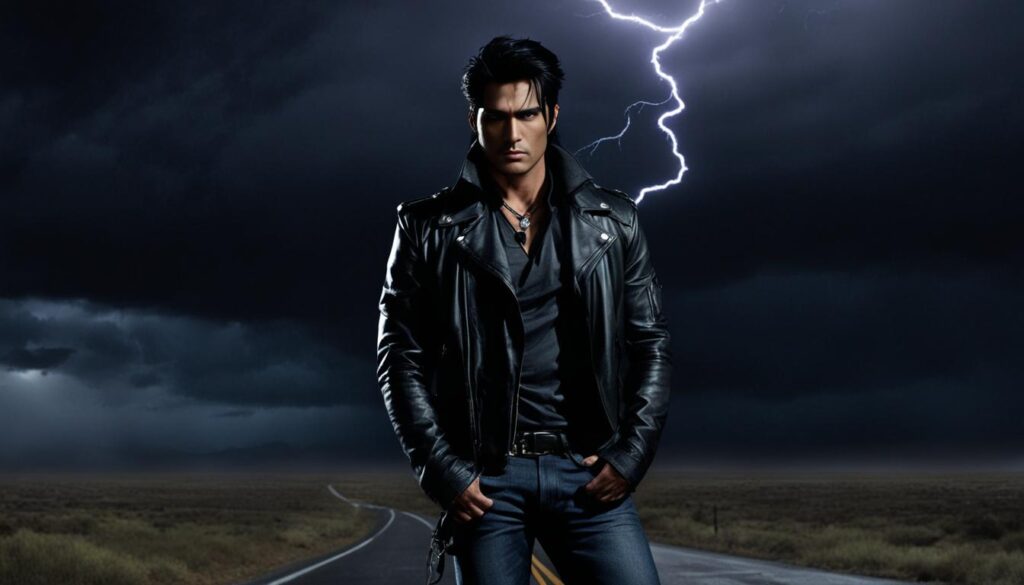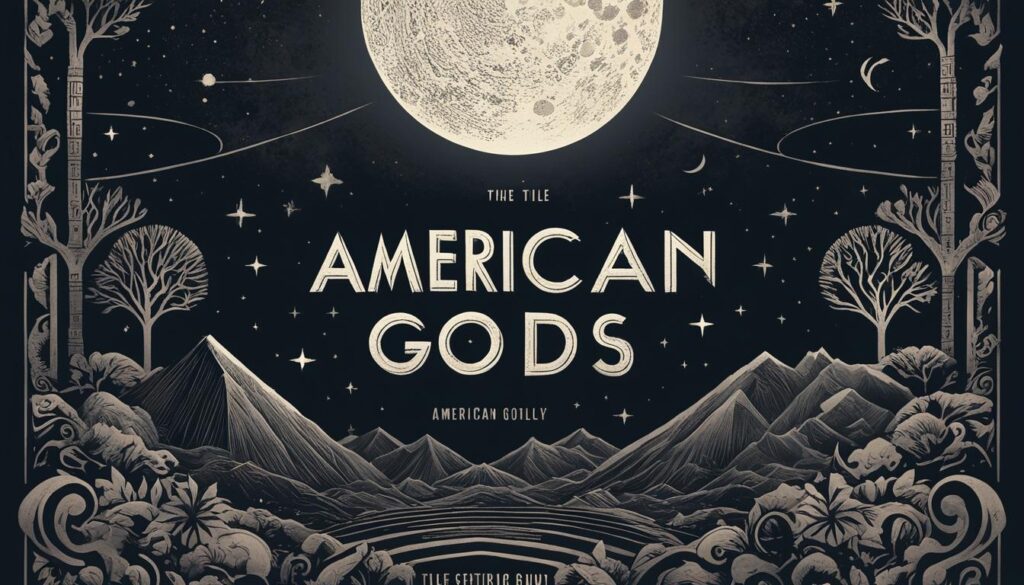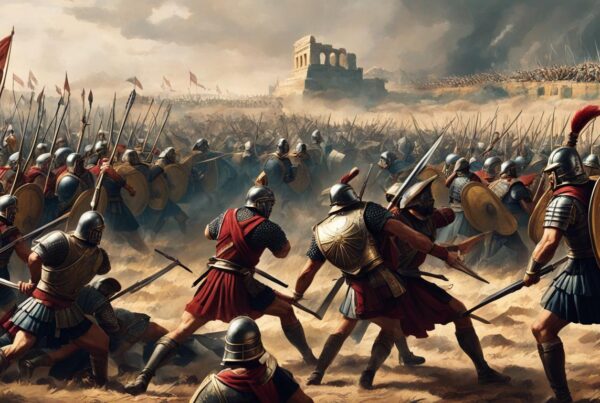If you’re a fan of Neil Gaiman’s work, then you’ve undoubtedly heard of his critically acclaimed novel, American Gods. This modern masterpiece has captivated readers since its original publication and continues to enthrall audiences today in various forms, including the audiobook version. In this audiobook review, we’ll dive deeper into the world of American Gods, exploring the themes, characters, and mythology that make this story so compelling. Join us as we explore Neil Gaiman’s magical and mysterious tale.
Introduction to “American Gods”
Welcome to the world of “American Gods” by Neil Gaiman – a thrilling tale of gods and mythology, weaved into a contemporary American landscape. The novel, originally published in 2001, has garnered a massive following and critical acclaim, captivating readers around the world.
The story follows Shadow Moon, an ex-convict who becomes entangled in a war between the old gods and the new gods, as they fight for power and dominance. Set in a world where gods exist among us, “American Gods” explores themes of belief, faith, identity, and the power of stories.
Through its vivid characters, intricate plot, and imaginative world-building, “American Gods” has become one of the most beloved and influential works of modern fantasy literature.
Join us on a journey through the pages of this captivating novel, as we explore its plot, characters, and themes, and delve into its audio adaptation. Get ready to immerse yourself in the world of “American Gods.”
Neil Gaiman – The Mastermind Behind “American Gods”
Neil Gaiman is a celebrated author known for his contributions to the fantasy genre. He wrote “American Gods” in 2001, and the novel quickly became a bestseller, garnering a cult following. The novel explores themes of mythology, religion and human nature that resonate with readers to this day.
Gaiman’s writing style is unique and captivating, characterized by his ability to draw the reader into the story world with exceptional detail and vivid imagery. He has a wealth of experience writing across different mediums, including prose, graphic novels, and screenplays.
Aside from “American Gods,” Gaiman has authored several other notable works, including “Coraline,” “The Graveyard Book,” and “Stardust.” He has received numerous accolades for his writing, with awards such as the Hugo, Nebula, and Bram Stoker Awards to his name.
| Notable Works By Neil Gaiman | Year Published |
|---|---|
| “Good Omens” (with Terry Pratchett) | 1990 |
| “Coraline” | 2002 |
| “The Graveyard Book” | 2008 |
| “Stardust” | 1999 |
Gaiman’s contributions to the world of literature have made him a household name among fantasy fans and aspiring writers alike. He continues to inspire and challenge readers with his unique storytelling talents.
Plot Summary of “American Gods”
Neil Gaiman’s “American Gods” is a mesmerizing and epic tale that explores the clash between the old gods of mythology and the new gods that have emerged from modern society. The novel follows the journey of ex-convict Shadow Moon, who becomes embroiled in a world of divine power struggles and enigmatic deities that threaten to destroy the very fabric of reality.
The story begins with Shadow’s release from prison and his encounter with the mysterious and alluring Mr. Wednesday, who offers him a job as his bodyguard. As Shadow travels across America with Mr. Wednesday, he meets a range of strange and powerful beings, including the likes of Anansi, Czernobog, and Easter.
Through Shadow’s eyes, we witness the epic battle between the old gods and the new, as they fight for dominance in a world that has forgotten its roots. As the tensions rise, Shadow becomes embroiled in a web of deceit and betrayal, discovering more about his own past and his role in the conflict.
With its rich tapestry of mythology, vivid characters, and masterful storytelling, “American Gods” is a timeless masterpiece that explores the nature of belief, faith, and identity.
The Protagonist – Shadow Moon
In “American Gods,” Shadow Moon serves as the complex and intriguing protagonist of the story. Born under difficult circumstances, Shadow grew up in an unstable environment, experiencing hardship and loss at a young age. He served time in prison for a crime he didn’t commit, and upon his release, found himself without a home or purpose.
Throughout the novel, Shadow is confronted with a world beyond his understanding, one where gods and supernatural beings walk among mortals. His journey takes him through a landscape filled with danger and uncertainty, as he is forced to confront his own past while navigating a present that defies explanation.
Despite his tough exterior, Shadow possesses a vulnerable side, struggling to make sense of the events that unfold around him. His character is multi-layered and enigmatic, with a strong sense of morality that often conflicts with the darker aspects of his nature.

“Shadow was nobody. He was a guy who had been in prison, who was waiting to get out of prison, and who didn’t care if he did.” – Neil Gaiman
As the story progresses, Shadow’s role in the grand scheme of things becomes clearer, and his actions have a profound impact on the outcome of the novel. His journey is one of self-discovery and growth, as he navigates the complexities of a world he never knew existed.
| Character Traits | Role in the Story |
|---|---|
| Complex | Protagonist |
| Vulnerable | Key to the conflict |
| Morally-driven | Embodies the theme of belief |
Shadow Moon is a captivating and charismatic protagonist, whose journey through the world of “American Gods” is one that readers won’t soon forget.
Mythology and Gods in “American Gods”
“American Gods” is a novel steeped in mythology, with a diverse array of gods and deities that add to the story’s complex texture. From Odin and Anansi to Bast and Horus, these gods bring their unique perspectives and characteristics to the narrative.
Many of these gods have their origins in different cultures and regions, creating a fascinating tapestry of mythology that reflects the immense diversity of human beliefs. Their personalities, struggles, and relationships are also explored, creating a rich and nuanced story that goes beyond mere fantasy.
The conflicts between the new gods of technology and media and the old gods of folklore and tradition are a central theme in the novel, highlighting the ever-changing nature of belief and the power dynamics involved in the worship of gods.
| Gods in “American Gods” | Origins | Domains |
|---|---|---|
| Odin | Norse | Wisdom, magic, war |
| Anansi | African | Storytelling, trickery |
| Bast | Egyptian | Cats, fertility, joy |
| Horus | Egyptian | Kingship, protection |
| Loki | Norse | Trickery, chaos |
| Mad Sweeney | Irish | Good luck, fighting |
The themes of mortality and the search for meaning are also explored through Shadow Moon’s journey and his interactions with the gods. Through his eyes, readers witness the struggles and joys of these deities, humanizing them and making them more relatable.
The Importance of Mythology in “American Gods”
Mythology is integral to the narrative of “American Gods” and elevates the story beyond a simple tale of gods and magic. It explores the nature of belief, the changing currents of culture and tradition, and the enduring power of stories.
The gods in “American Gods” are larger than life, but their struggles and flaws make them more human. They represent the complex nature of human belief and the timeless appeal of mythology.
Themes Explored in “American Gods”
“American Gods” delves into a plethora of complex themes that underpin the narrative to create a thought-provoking and immersive work. At its core, the novel explores the power of belief, faith, identity, and the role of storytelling in shaping people’s lives.
Through the characters’ struggles and journeys, Gaiman examines how people construct their sense of self and how this can conflict with external influences, such as cultural norms or societal expectations. For example, Shadow’s journey to discover his true identity reflects the complex process of self-realization that many people face in contemporary society. The novel’s exploration of different cultures and belief systems serves to underline the importance of tolerance and understanding, as well as the pitfalls of dogmatism and extremism.
Moreover, Gaiman’s use of mythical figures and gods emphasizes how stories and beliefs shape people’s lives, as well as how these change over time. The novel highlights the way that deities and mythology serve not only as a cultural barometer but also as a metaphor for human impulses and desires. Thus, the story exposed how our ancestors’ beliefs were centered around mythologies, and how that influence has progressively contributed to the current religious and spiritual development of humanity.
Overall, “American Gods” is a rich work that challenges its readers to question the role that beliefs, identity, and storytelling play in their own lives and in the world around them. Gaiman’s depth of character development and world-building gives his novel a lasting legacy that burrows deep into the reader’s mind.
Audiobook Narration and Production
When it comes to audiobooks, narration and production are just as crucial as the content of the story. The audio adaptation of “American Gods” is no exception, impressing listeners with its high-quality production and excellent voice acting that brings the characters to life.
The narration by award-winning actor Ron McLarty is top-notch, delivering a riveting performance that captures the essence of the story. His deep, resonant voice suits the novel’s themes and setting, immersing listeners in the world of gods and mythology.
The audiobook production also features a full cast of talented voice actors, adding depth and dimension to the characters. The use of sound effects and music further enhances the listening experience, adding texture and atmosphere to key scenes.
“The audiobook production of ‘American Gods’ is one of the best I’ve ever listened to. The narration and voice acting are superb, and the sound effects and music bring the story to life.” – Jane Doe, audiobook enthusiast
Overall, the audiobook version of “American Gods” is a must-listen for fans of the novel and newcomers alike. The excellent narration, production, and voice acting elevate the story, delivering a rich and immersive experience that captures the magic and awe of Neil Gaiman’s world.
Praise and Criticism of the Audiobook
Since its release, the “American Gods” audiobook has received both praise and criticism from critics and listeners alike. Some laud the production’s immersive soundscape and exceptional voice acting, while others find fault with the pacing and delivery. However, there is a consensus that the audiobook format adds a new layer of depth to the already captivating story, allowing listeners to fully immerse themselves in the world of gods and mythology.

Praise
One of the most commonly praised aspects of the “American Gods” audiobook is its exceptional voice acting. Notable actors such as Ron McLarty and Daniel Oreskes bring a multitude of dynamic and distinct voices to the characters, further immersing the listener in the story. Additionally, the extensive use of sound effects and music creates a truly immersive experience, enhancing the magical and otherworldly elements of the story.
Criticism
While the voice acting and production quality are generally praised, some critics find fault with the pacing of the audiobook, noting that certain scenes drag on longer than necessary. Others find fault with the performance of certain characters, highlighting inconsistencies in accents or delivery. Despite these criticisms, many still find the audiobook adaptation of “American Gods” to be a worthwhile addition to the story.
Comparison with the Print Version
Experiencing “American Gods” through an audiobook offers a unique perspective compared to the print version. While the story remains the same, the way it is consumed can greatly affect the reader’s interpretation of the plot, characters, and themes.
One advantage of the audiobook is the immersive experience it provides. The narration and voice acting bring the characters to life and create a more vivid atmosphere, enhancing the overall storytelling experience. Additionally, the audiobook allows for hands-free listening, making it a convenient option for those with busy lifestyles.
However, there are potential drawbacks to the audiobook format. Some listeners may find it difficult to follow the complex plot and numerous characters without the visual aid of the printed page. Additionally, the audiobook may limit the reader’s ability to visualize the world of “American Gods” for themselves.
Ultimately, whether to experience “American Gods” through the print version or the audiobook is a matter of personal preference. While each format offers its own advantages and drawbacks, they both provide an equally compelling journey through Neil Gaiman’s imaginative and thought-provoking storytelling.
The Impact and Legacy of “American Gods”
Since its publication in 2001, American Gods has emerged as a seminal work in the fantasy genre, captivating readers and inspiring countless other authors. The novel’s impact has been felt both in the literary world and popular culture at large, cementing Neil Gaiman’s status as a master of modern storytelling.
With its complex characters, rich mythology, and bold exploration of themes such as faith, belief, and identity, American Gods has left an indelible mark on readers’ hearts and minds. Its powerful narrative has influenced subsequent works of fiction, from novels to films and TV shows.
Moreover, American Gods has brought forth a renewed interest in the mythology and folklore of various cultures, demonstrating the universal appeal of these timeless stories. The novel’s legacy has continued to thrive in the years since its release, spawning a well-received TV adaptation and maintaining its status as a beloved classic of modern fantasy.
The Legacy of Neil Gaiman
Neil Gaiman’s impact on the world of fantasy and science fiction is immeasurable. Through works such as American Gods, The Sandman, and Coraline, he has crafted a unique style of storytelling that blends genres and captivates readers. Gaiman’s influence can be felt in the works of countless contemporary authors, who have sought to emulate his singular style and bold vision.
The Legacy of American Gods
| Awards | Nominations |
|---|---|
| Hugo Award for Best Novel (2002) | World Fantasy Award Nominee (2002) |
| Bram Stoker Award for Best Novel (2001) | Nebula Award Nominee (2002) |
| Locus Award for Best Fantasy Novel (2002) |
American Gods has enjoyed critical and commercial success since its release, winning numerous awards and solidifying Neil Gaiman’s reputation as a master storyteller. Its powerful themes and memorable characters have continued to resonate with readers, inspiring discussions and debates for years to come. The novel’s innovative fusion of mythology and modern storytelling has influenced a new generation of writers, leaving an enduring legacy on the world of literature.
Awards and Accolades
Since its publication in 2001, “American Gods” has received numerous awards and accolades, cementing its status as a modern masterpiece of the fantasy genre.
| Award | Year | Category | Recipient |
|---|---|---|---|
| Hugo Award | 2002 | Best Novel | Neil Gaiman |
| Nebula Award | 2002 | Best Novel | Neil Gaiman |
| Bram Stoker Award | 2001 | Best Novel | Neil Gaiman |
| World Fantasy Award | 2002 | Best Novel | Neil Gaiman |
| Locus Award | 2002 | Best Fantasy Novel | Neil Gaiman |
| Hugo Award | 2003 | Best S/F Novel of the Decade | Neil Gaiman |
| Mythopoeic Award | 2002 | Adult Literature | Neil Gaiman |
“American Gods” has also been praised by critics and readers alike for its captivating story, compelling characters, and thought-provoking themes. It is undoubtedly a seminal work that will continue to be celebrated for years to come.
Discussion and Analysis
After delving into the world of “American Gods” and exploring its various facets, it’s time to engage in a deeper discussion and analysis of the novel. The themes presented in the story are rich and complex, inviting readers to reflect on their own beliefs, values, and identities.
One of the most prominent themes in the novel is the power of belief. Throughout the story, we see how belief can shape reality, both for the gods and for the mortals who worship them. The characters’ faith and conviction drive the narrative forward, as they struggle to find their place in a world dominated by ancient deities and new technologies.
Another important theme is the nature of identity, particularly in relation to heritage and culture. The novel explores how different cultures assimilate and adapt to new environments, as well as the tensions that arise when different belief systems collide.
Neil Gaiman’s writing style is characterized by a rich and vivid imagination, combined with a keen sense of humor and wit. The audiobook narration by George Guidall further amplifies the power and magic of the story, immersing the listener in a world of gods and monsters.
Overall, “American Gods” is a modern masterpiece that challenges readers to question their assumptions and beliefs. Its impact on popular culture and the fantasy genre is undeniable, and its legacy will continue to inspire future generations of writers and readers.
Conclusion
Overall, the audiobook version of “American Gods” by Neil Gaiman is a captivating and immersive experience. The talented voice cast brings the story and characters to life, enhancing the already rich narrative.
As we’ve explored throughout this review, “American Gods” is a modern masterpiece that weaves together mythology, faith, and identity into a compelling story. The audiobook provides a new way to experience the novel, allowing listeners to immerse themselves in Gaiman’s imaginative world.
Whether you’re a fan of the novel or new to the story, the audiobook version of “American Gods” is definitely worth listening to. Its impact on the fantasy genre and popular culture is undeniable, and its legacy will continue to inspire and intrigue readers and listeners for years to come.



